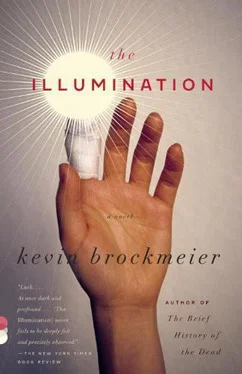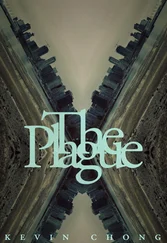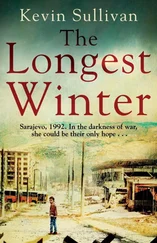After he had showered and eaten breakfast, he got his camera and set off on his crutches. He wanted to see what images the world would present to him, whether his eye had been altered by sorrow, whether he had any skill left, any talent, and that was how he came to meet the cutters.
He had spent the morning framing the pictures he saw in his lens, capturing them one by one—although he hated that word, capture; hated its suggestion that with a camera you could seize any sight that presented itself to you, stuff it in a cage, and point to it as it jammed its nose through the bars. Better to say that he preserved them, then. He preserved the sight of an old man sitting on a motionless merry-go-round, a long strand of angina shining through his shirt. The sight of a mother smacking the seat of her son’s pants, the burning corona of a bite mark on her arm. A street cop with a gleaming herpes infection on his lip. A rail-thin window-dresser, her sides lit up by shingles. The sight of a girl afflicted with acne, staring down at herself in a fountain, her face fluorescing up at her from the steel mirror of the water. He was pleased to discover that he had not lost his facility for composition, that the lines and curves of things still sought out their counterparts in the air, their colors laying their shapes out in polychromatic blocks. His camerawork had always been a product of habit and instinct, tilting toward craftsmanship rather than artistry, and maybe that had made him a second-rate photographer—he didn’t know—but there was one thing to be said for habit and instinct, for plain old humble craftsmanship, and that was that it wasn’t so easy to snuff out.
He had shouldered his camera and was preparing to head back home when one last image presented itself to him: a pack of adolescents, seventeen or eighteen years old, smoking cigarettes beneath the bus shelter. Their arms and legs were patterned with dozens of freshly inflicted injuries. The glowing lines and tiny luminescent planets on their skin resembled the pits and notches carved into the bus bench. His gaze was drawn to their deliberate, almost sculptural quality. He found it hard to look away.
Surreptitiously, he returned his camera to his eye, moving his head a few inches to the left to compose a shot. Before he could release the shutter, though, a boy with a chain of burn blisters reaching up his arm shouted, “Hey! Dude with the camera! C’mere!”
Jason looped the strap around his neck and crossed the street, steadying himself on his crutches when he reached the shelter.
“What’s your name, man?” the boy asked him.
“Jason Williford. I’m a photojournalist for the Gazette . You guys don’t mind if I snap a few pictures, do you?”
“Ten dollars.”
“What?”
“Ten dollars, and you can take our picture. Apiece.”
“I can’t offer you any money. I’m a journalist.”
“Ten dollars in cigarettes then. There’s a gas station over there on the corner. Call them a gift.”
He thought it over. There was a specific shot he kept envisioning, one that would allow the wounds engraved on their skin to flow across the borders of their bodies into the pocks and slashes on the bus bench, like hanging lights echoed in a polished tabletop.
“Two packs. Two packs for the lot of you. That’s the best I can do.”
“Deal,” the boy agreed. Jason was halfway to the corner when a girl perched on the backrest of the bench, her shoes beating out a two-four rhythm, called after him. “Salem Black Labels!”
As soon as he returned with the cigarettes, a boy in a red T-shirt tore the cellophane from one of the packs, knocked a cigarette loose, and replaced it upside-down. Then he tweezed a second one out with his small, knuckly fingers and lit it. “I heard these things are bad for you,” he said. “Did you know that quitting smoking now greatly reduces serious risks to your health?”
One of the other kids said, “Huh-I-did-not-know-that. Did you know that smoking by pregnant women may result in fetal injury, premature birth, and low birth weight?”
Hardly a beat had passed before someone added, “Did you know that quitting your health now greatly reduces serious risks to your smoking?” And then they were all working at it together, jockeying to extend the thread of the joke. They passed the cigarettes around with a plastic lighter. Jason took advantage of their inattention and began snapping pictures. There was a panel ad on the back of the bus shelter that kept disrupting the balance of the shots, announcing in bold black letters PERSONAL INJURY, MEDICAL NEGLIGENCE, BIG TRUCKS, and time after time he had to find a perspective that would obscure the words. Ordinarily he would have crouched or stood on his toes, maybe climbed over the bench for a better angle, but the brace on his leg had turned such maneuvers into elaborate feats of acrobatics.
In the end, though he wasn’t quite able to achieve the image he had envisioned, he found one that came close: the dazzling white stroke of the recent incision on a girl’s exposed waist beside a scythelike mark on the fiberglass bench, the one extending into the other in a perfect curve. Quickly, before the girl could move, he released the shutter.
The other girl, the lovely pale fashion-model-type sitting atop the bench, the one who had shouted for Salem Black Labels, gestured to him. “Hey, Jason Williford, photojournalist. I’ve got a picture for you. Are you ready?” She took three quick drags on her cigarette to make the emberhead glow, then, on the inside of her wrist where the blue vein beat, extinguished it. A powerful smell overtook the air, like the whiff of salt and char at a burger joint. The cigarette sizzled, and the smoke changed color, and a magnificent wave of light came bloating out of the burn. Through Jason’s camera, it resembled the great fanning loop of a solar flare. The aurora borealis was dancing over Greenland. Radios everywhere were filling with static. He couldn’t help himself: he took the shot.
Within seconds the light had subsided, throwing off a few last sparks as it fell to the surface of the girl’s wrist, where it continued to twitch and flutter. A smile was locked on her face. The bays of skin beneath her eyes were moist with tears. He took a shot of that, as well.
Enough, he decided. Laskowski and Christman be damned.
He capped the camera and returned it to his shoulder. “So all those cuts on your bodies—you guys did those to yourself?”
The kids exchanged a glance and broke up laughing.
That evening he was sorting through the pictures he had taken, selecting the ones to submit to his editor, when he realized something: during his long afternoon in the processing room, not once had he thought about Patricia. He had become lost in the familiar beaverish activity of enlarging, fixing, and scanning his photos, and his memories of her had vanished, along with his awareness of the pain in his leg. The little system of injuries that was his body and the one immense injury that was his life—he had forgotten about them both, and when he thought back on the contentment he had felt, a terrific surge of guilt passed through him. He had accepted that he would forget Patricia in his suffering sometimes, but to forget her in his pleasure? It seemed monstrous, inexcusable. He forced himself to picture her: the freckles on her back and shoulders, the soft, swelling veins that ran along her ankle, the dimple that appeared on her cheek whenever she tried not to smile, all of it swimming in the blood of the car accident.
He bore down on his knee until the joint spasmed with light. His breathing quickened, and his teeth ground together. He would not allow his pain to forsake him.
——
Two days later he had an appointment with his physical therapist. The routine was familiar by now. She gripped his shoulder as he executed a slow windmill with his arm—a simple matter of form, since his collarbone had already healed—then had him straighten his back and twist his torso around, inspecting his hip for signs of stiffness or discomfort. She examined his stomach as he performed a sit-up. The scar on his abdomen shone in the glare from the overhead lamp, and she had to switch it off to make sure the source was not internal. Finally she came to his leg, guiding him through a battery of stretches, lifts, and pivots that made his face break out in a hard sweat.
Читать дальше












